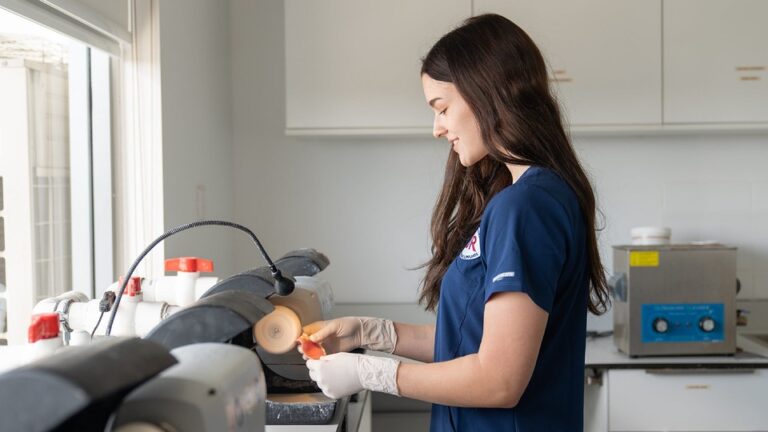Book Appointment Now

Vaccination Protocols for International Travel
International travel can expose individuals to various infectious diseases, making vaccinations an essential part of travel preparation. Nurses play a vital role in ensuring that patients follow proper vaccination protocols for international travel, protecting them from potential health risks while abroad. By understanding the required vaccines and educating travelers, nurses help promote global public health.
Get a custom nursing essay on travel vaccination protocols assignment? ![]()
Why Vaccination is Essential for International Travelers
Traveling to different countries exposes individuals to various infectious diseases not commonly found in their home countries. These diseases can include yellow fever, typhoid, hepatitis A and B, and others, depending on the region. Nurses are key in identifying the required vaccines for travelers based on their destination and health status.
The World Health Organization (WHO) and the Centers for Disease Control and Prevention (CDC) provide updated guidelines for travel vaccination protocols. Nurses must stay informed about these guidelines to properly assess, recommend, and administer the necessary vaccines.
Nursing Assessment for Travel Vaccinations
Before providing vaccinations, nurses conduct a comprehensive health assessment for each patient. Key components of the assessment include:
- Travel destination: Certain regions, especially in Africa, South America, and Asia, may require specific immunizations, such as for yellow fever or typhoid.
- Duration of stay: Longer stays may increase the risk of exposure to infectious diseases, prompting additional vaccinations.
- Patient’s medical history: Chronic illnesses, immune-compromising conditions, or allergies may impact the type and timing of vaccines.
- Vaccination history: Nurses ensure that the patient’s routine immunizations are up-to-date before administering travel-specific vaccines.
This assessment allows nurses to create a personalized vaccination plan for international travel that protects the patient while minimizing potential side effects.
Recommended Vaccines for International Travel
Nurses must stay updated on the latest travel health guidelines to advise patients on the appropriate immunizations. Some common vaccines required for travel include:
1. Yellow Fever Vaccine
- Regions: Africa, South America
- Protocol: Many countries require proof of yellow fever vaccination before entry. The vaccine provides lifelong protection in most cases.
2. Hepatitis A and B Vaccines
- Regions: Globally, but especially in areas with poor sanitation and water quality.
- Protocol: Administered in a series of doses, these vaccines protect against liver infections caused by contaminated food and water or bloodborne transmission.
3. Typhoid Vaccine
- Regions: South Asia, parts of Africa, Latin America
- Protocol: Available as an injectable or oral vaccine, it protects against typhoid fever caused by Salmonella-contaminated food or water.
4. Rabies Vaccine
- Regions: Southeast Asia, Africa, and Latin America
- Protocol: Recommended for travelers at high risk of animal exposure. Nurses should advise individuals participating in outdoor activities like hiking or camping to consider this vaccine.
Nurses’ Role in Pre-Travel Vaccination Counseling
A key part of public health nursing for travel involves educating patients about disease prevention beyond vaccinations. Nurses should offer holistic guidance on:
- Preventing mosquito bites: In regions where diseases like malaria and dengue fever are prevalent, travelers should use insect repellent, wear long sleeves, and sleep under mosquito nets.
- Safe food and water consumption: To prevent illnesses like hepatitis A and typhoid, travelers should avoid street food, drink bottled water, and wash their hands frequently.
- Monitoring for symptoms: Nurses can inform patients about the signs of illnesses like yellow fever, typhoid, or rabies, and stress the importance of seeking medical care promptly if symptoms arise.
This comprehensive counseling prepares patients for safe travel and minimizes the risk of contracting illnesses abroad.
Nursing Protocols for Administering Travel Vaccines
Administering travel vaccines requires specific protocols to ensure patient safety and effective immunization. Nursing interventions include:
- Ensuring proper vaccine storage: Many vaccines must be kept at specific temperatures to remain effective. Nurses should follow storage guidelines to maintain vaccine potency.
- Recording vaccination details: Providing patients with an International Certificate of Vaccination or Prophylaxis (ICVP) is mandatory for certain vaccines, such as yellow fever. Accurate documentation ensures compliance with vaccination protocols for international travel.
- Managing side effects: After administering vaccines, nurses should monitor for immediate allergic reactions and educate patients on potential delayed side effects, such as mild fever or soreness at the injection site.
By adhering to these protocols, nurses help ensure safe and effective immunization for travelers.
Nurses are essential in guiding patients through vaccination protocols for international travel. By conducting thorough assessments, administering vaccines, and providing detailed counseling, nurses play a crucial role in disease prevention and promoting safe travel. As travel patterns evolve and new infectious diseases emerge, nurses must stay informed and proactive in protecting the global community.
Also read:
- Scientific evidence concerning the safety of vaccinations
- Summarize the vaccinations for the greater than 65 years of age group
- HMGT 300 Week 8 Million Vaccinations Goal Discussion
- Opinion Regarding Vaccinations Discussion
- Research paper on use of vaccinations
- Discussion:Dispensing of COVID-19 Vaccination
- COVID 19 Vaccination Mandates Discussion







